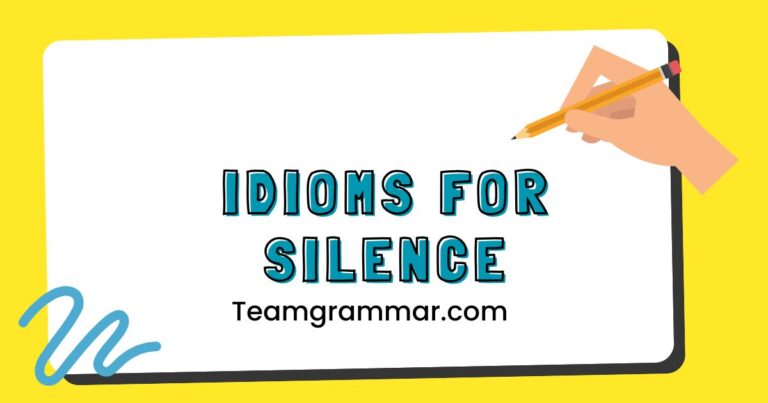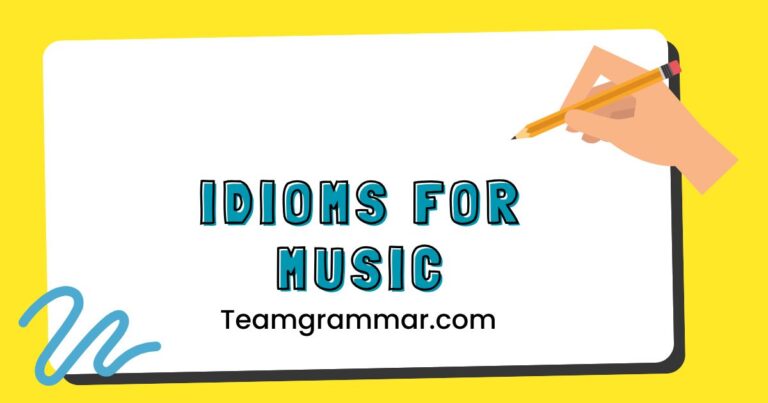31 Idioms for Ice Cream: Sweeten Your English!
Idioms add color and nuance to the English language, allowing speakers to express complex ideas with vivid and memorable phrases. Understanding idioms is crucial for both comprehending native speakers and enriching your own communication.
This article delves into idioms related to “ice cream,” exploring their meanings, origins, and proper usage. Whether you’re an English language learner or a seasoned speaker, mastering these idioms will undoubtedly sweeten your linguistic skills and enhance your ability to connect with others on a deeper level.
This guide is designed for students, teachers, and anyone passionate about mastering the art of English communication.
Table of Contents
- Introduction
- Definition of Idioms
- Structural Breakdown of Idioms
- Types and Categories of Idioms
- Examples of Ice Cream Idioms
- Usage Rules for Ice Cream Idioms
- Common Mistakes with Ice Cream Idioms
- Practice Exercises
- Advanced Topics in Idiom Usage
- Frequently Asked Questions
- Conclusion
Definition of Idioms
Anidiomis a phrase or expression whose meaning cannot be understood from the literal meanings of its individual words. Instead, the phrase has a figurative or symbolic meaning that is specific to a particular language or culture.
Idioms often evolve over time and reflect the history and values of the people who use them. They add depth and color to communication, but can also be challenging for non-native speakers to understand.
Idioms can be classified according to their grammatical structure and function. Some idioms are verb phrases (e.g.,kick the bucket), while others are noun phrases (e.g.,piece of cake).
They can function as subjects, objects, verbs, or modifiers within a sentence. Understanding the grammatical role of an idiom can help you use it correctly in different contexts.
The context in which an idiom is used is crucial for understanding its meaning. The same idiom can have different connotations depending on the speaker’s tone, the setting, and the relationship between the people involved.
Therefore, it’s important to pay attention to the surrounding text or conversation when interpreting an idiom.
Structural Breakdown of Idioms
The structure of an idiom is fixed, meaning that the words cannot be changed or rearranged without altering its meaning or making it nonsensical. For example, the idiom “spill the beans” cannot be changed to “pour the beans” without losing its intended meaning of revealing a secret.
The rigid structure of idioms is one of the things that makes them difficult for language learners to master.
Many idioms follow specific patterns, such as using metaphors (e.g., “raining cats and dogs”), similes (e.g., “as cool as a cucumber”), or hyperbole (e.g., “I’m so hungry I could eat a horse”). Recognizing these patterns can help you understand and remember idioms more easily.
For instance, noticing that “as [adjective] as [noun]” is a common simile pattern can help you recognize and interpret similar idioms.
Some idioms have historical or cultural origins that shed light on their meaning. For example, the idiom “bury the hatchet” comes from the Native American practice of burying a tomahawk to symbolize the end of a conflict.
Understanding the origin of an idiom can make it more memorable and meaningful.
Types and Categories of Idioms
Idioms can be categorized based on their function, structure, or the subject they relate to. Here are some common categories:
Functional Categories
- Verb idioms: These idioms involve a verb and often an adverb or preposition (e.g., give up, look forward to).
- Noun idioms: These idioms function as nouns (e.g., a piece of cake, a hot potato).
- Adjectival idioms: These idioms function as adjectives (e.g., as cool as a cucumber, brand new).
Structural Categories
- Metaphorical idioms: These idioms use metaphors to convey their meaning (e.g., break the ice, hit the nail on the head).
- Simile idioms: These idioms use similes to make comparisons (e.g., as easy as pie, as quiet as a mouse).
- Hyperbolic idioms: These idioms use exaggeration for emphasis (e.g., I’m so hungry I could eat a horse, I’ve told you a million times).
Subject-Related Categories
- Food idioms: These idioms relate to food and eating (e.g., piece of cake, spill the beans).
- Animal idioms: These idioms relate to animals (e.g., raining cats and dogs, a wolf in sheep’s clothing).
- Weather idioms: These idioms relate to weather conditions (e.g., under the weather, fair-weather friend).
Examples of Ice Cream Idioms
While there aren’t many established idioms *specifically* about ice cream, we can explore phrases that evoke similar feelings or concepts associated with ice cream, such as pleasure, ease, or being “cool.” Here are some examples of idioms and expressions that can be related to the experience of enjoying ice cream:
Idioms Relating to Pleasure and Enjoyment
This table includes idioms that capture the feeling of happiness and satisfaction, similar to the joy of eating ice cream.
| Idiom | Meaning | Example Sentence |
|---|---|---|
| Living the Sweet Life | Enjoying a life of luxury and pleasure. | Since winning the lottery, he’s been living the sweet life, traveling the world and eating gourmet food. |
| A Piece of Cake | Something very easy to do. | The exam was a piece of cake; I finished it in half the time. |
| On Cloud Nine | Extremely happy. | She was on cloud nine after receiving the promotion. |
| Happy as a Clam | Very content and satisfied. | He’s been as happy as a clam since he retired and moved to the beach. |
| Like a Kid in a Candy Store | Excited and delighted, like a child surrounded by sweets. | He was like a kid in a candy store when he saw all the new gadgets at the technology fair. |
| Tickled Pink | Very pleased and amused. | She was tickled pink by the surprise party her friends threw for her. |
| In Seventh Heaven | In a state of perfect happiness. | They were in seventh heaven after the birth of their first child. |
| Grin Like a Cheshire Cat | To smile broadly and mischievously. | He was grinning like a Cheshire cat after pulling off the prank. |
| Have a Blast | To have a great time. | We had a blast at the concert last night. |
| Laugh Your Head Off | To laugh very hard. | The comedian had the audience laughing their heads off. |
| Be in High Spirits | To be cheerful and happy. | The team was in high spirits after winning the championship. |
| Over the Moon | Extremely pleased and happy. | She was over the moon when she found out she had been accepted into her dream university. |
| Paint the Town Red | Go out and enjoy oneself exuberantly. | After graduation, they decided to paint the town red and celebrate their achievements. |
| A Joy to Behold | Something that is very pleasing to see or experience. | The sunset over the ocean was a joy to behold. |
| A Feast for the Eyes | Something visually stunning and delightful. | The art exhibit was a feast for the eyes, with so many beautiful paintings and sculptures. |
| A Dream Come True | Something that one has hoped for for a long time finally happens. | Opening her own bakery was a dream come true for her. |
| In the Pink | In good health and spirits. | After a week of rest, she was back in the pink and ready to work. |
| High on Life | Feeling exhilarated and happy without the use of drugs or alcohol. | After completing the marathon, he was high on life and full of energy. |
| On Top of the World | Feeling extremely happy and successful. | He felt on top of the world after closing the biggest deal of his career. |
| Happy-Go-Lucky | Carefree and cheerful. | She has a happy-go-lucky attitude and always sees the bright side of things. |
Idioms Relating to Ease and Simplicity
This table includes idioms that describe how something is effortless and straightforward, like enjoying a scoop of ice cream on a warm day.
| Idiom | Meaning | Example Sentence |
|---|---|---|
| Easy Peasy Lemon Squeezy | Extremely easy. | Don’t worry about the assignment; it’s easy peasy lemon squeezy. |
| A Walk in the Park | Something very easy to do. | The interview was a walk in the park compared to what I expected. |
| Plain Sailing | Easy and without problems. | Once we got past the initial setup, it was plain sailing. |
| A Breeze | Something very easy to do. | Learning to ride a bike was a breeze for him. |
| No Sweat | No problem; easy. | Can you help me move this furniture? No sweat, I’m happy to help. |
| As Easy as ABC | Very easy to understand or do. | Learning the alphabet is as easy as ABC for young children. |
| A Piece of Cake | Something very easy to do. | The exam was a piece of cake; I finished it in half the time. |
| Like Taking Candy from a Baby | Very easy to do, often implying unfairness. | Beating him at chess was like taking candy from a baby. |
| Falling off a Log | Extremely easy to do. | Balancing on the beam was as easy as falling off a log for the gymnast. |
| A Cinch | Something that is very easy to do. | Getting tickets to the show was a cinch, thanks to my friend who works there. |
| As Simple as Pie | Very easy or straightforward. | The instructions were as simple as pie; even a child could follow them. |
| A Pushover | A person who is easily influenced or persuaded. | He’s such a pushover; you can get him to agree to anything. |
| Duck Soup | Something very easy to do. | For him, fixing computers is duck soup. |
| A Snip | A bargain or something easily accomplished. | Getting the promotion was a snip after all the hard work I put in. |
| Child’s Play | Something very easy to do. | For a professional chef, cooking that dish is child’s play. |
| A cakewalk | An event or task that is very easy or effortless. | The charity fun run was a cakewalk compared to a marathon. |
| A doddle | Something that is very easy to do. | Installing the new software was a doddle, thanks to the clear instructions. |
| A snap | Something easily done. | With the right tools, repairing the bike tire is a snap. |
| A piece of old tackle | Something that is very easy. | Solving that puzzle was a piece of old tackle for him. |
| A five-finger exercise | Something very easy to do. | Playing that song on the piano is just a five-finger exercise for her. |
Idioms Relating to Being “Cool” (Calmness and Composure)
This table includes idioms that evoke the idea of calmness, composure, and being unaffected by stress, similar to the refreshing coolness of ice cream.
| Idiom | Meaning | Example Sentence |
|---|---|---|
| Cool as a Cucumber | Very calm and composed, especially in a difficult situation. | Despite the pressure, she remained as cool as a cucumber during the presentation. |
| Keep Your Cool | Stay calm and composed; don’t get angry or upset. | It’s important to keep your cool, even when things go wrong. |
| Stay Chill | Remain relaxed and calm. | Just stay chill and don’t worry about the small stuff. |
| Calm, Cool, and Collected | Composed and in control of one’s emotions. | The negotiator was calm, cool, and collected throughout the tense discussions. |
| Take it Easy | Relax and don’t stress. | Take it easy; everything will be alright. |
| Keep a Level Head | Stay calm and rational in a crisis. | In an emergency, it’s important to keep a level head and make smart decisions. |
| Not Bat an Eye | Show no surprise or emotion. | He didn’t bat an eye when he heard the bad news. |
| Unflappable | Having or showing calmness especially in a crisis. | The experienced pilot was unflappable, even during the storm. |
| Collected | Calm and in control of oneself; composed. | Even after the accident, she remained collected and called for help. |
| Level-Headed | Calm and sensible; not easily excited or upset. | A level-headed approach is needed to solve this problem effectively. |
| Poised | Having a composed and self-assured manner. | She remained poised and confident throughout her speech. |
| Serene | Calm, peaceful, and untroubled. | The lake was serene in the early morning light. |
| Tranquil | Free from disturbance; calm. | The forest was a tranquil place, far from the noise of the city. |
| Imperturbable | Unable to be upset or excited; calm. | The judge remained imperturbable despite the heated arguments in the courtroom. |
| Mellow | Relaxed and easy-going. | He’s become more mellow with age. |
| Laid-Back | Relaxed and easy-going. | They have a laid-back approach to life. |
| Nonchalant | Feeling or appearing casually calm and relaxed; not displaying anxiety, interest, or enthusiasm. | He tried to appear nonchalant, but she could tell he was nervous. |
| At Ease | Free from worry or awkwardness; relaxed. | She felt completely at ease in his company. |
| Composed | Having one’s feelings and expression under control; calm. | She remained composed despite the stressful situation. |
| Zen-like | Resembling or characteristic of Zen Buddhism, especially in its emphasis on meditation and intuition rather than scripture or ritual. | His zen-like calm helped to defuse the situation. |
Usage Rules for Ice Cream Idioms
While the idioms presented aren’t directly about ice cream, the rules for using them are the same as for any other idiom. The key is to understand their figurative meaning and use them in appropriate contexts.
Here are some general rules for using idioms:
- Understand the meaning: Make sure you know the figurative meaning of the idiom before using it. Using an idiom incorrectly can lead to confusion or miscommunication.
- Consider the context: Idioms are often informal and may not be appropriate for formal settings. Consider your audience and the situation before using an idiom.
- Don’t take them literally: Idioms are not meant to be taken literally. Focus on the overall meaning of the phrase, not the individual words.
- Use them sparingly: Overusing idioms can make your speech sound unnatural or forced. Use them judiciously to add color and emphasis to your communication.
- Be aware of cultural differences: Idioms are often specific to a particular language or culture. Be careful when using idioms with people from different backgrounds, as they may not understand them.
Here are some specific examples related to the idioms we discussed:
- Instead of saying “The test was very easy,” you could say “The test was a piece of cake.”
- Instead of saying “She was very happy,” you could say “She was on cloud nine.”
- Instead of saying “He remained calm,” you could say “He stayed cool as a cucumber.”
Common Mistakes with Ice Cream Idioms
One of the most common mistakes with idioms is taking them literally. This can lead to misunderstandings and humorous errors.
Another common mistake is using idioms in inappropriate contexts, such as formal writing or presentations.
Here are some examples of common mistakes:
| Incorrect | Correct | Explanation |
|---|---|---|
| “He was literally on cloud nine.” | “He was on cloud nine.” | “On cloud nine” is a figurative expression, not a literal one. |
| “The project was a piece of cake, so I baked it.” | “The project was a piece of cake.” | “Piece of cake” means easy, not an actual cake. |
| “She was cool as a cucumber, so I put her in the salad.” | “She was as cool as a cucumber.” | “Cool as a cucumber” means calm, not literally cold. |
| “He painted the town red with actual paint.” | “He painted the town red.” | “Paint the town red” means to go out and celebrate, not to literally paint buildings. |
| “The instructions were simple as pie, so I ate them.” | “The instructions were as simple as pie.” | “Simple as pie” means easy to understand, not to be eaten. |
Practice Exercises
Test your understanding of idioms with these practice exercises. Fill in the blanks with the appropriate idiom from the list below.
- A piece of cake
- On cloud nine
- Cool as a cucumber
- Paint the town red
- Easy peasy lemon squeezy
Exercise 1: Fill in the Blanks
| Question | Answer |
|---|---|
| 1. The exam was __________. I finished it in 30 minutes. | A piece of cake |
| 2. She was __________ after getting engaged. | On cloud nine |
| 3. He remained __________ despite the stressful situation. | Cool as a cucumber |
| 4. After graduation, they decided to __________ and celebrate. | Paint the town red |
| 5. Learning to code is _________ with the right tutorial. | Easy peasy lemon squeezy |
| 6. For her, public speaking is __________. She loves being on stage. | A piece of cake |
| 7. After winning the championship, the team was __________. | On cloud nine |
| 8. Even during the fire, the firefighter was __________. | Cool as a cucumber |
| 9. To celebrate their anniversary, they decided to __________. | Paint the town red |
| 10. Using this new software is __________. | Easy peasy lemon squeezy |
Exercise 2: Multiple Choice
Choose the correct meaning of the idiom in the sentence.
| Question | Options | Answer |
|---|---|---|
| 1. The project was a piece of cake. What does “a piece of cake” mean? | a) delicious b) very easy c) complicated d) impossible | b) very easy |
| 2. She was on cloud nine after getting the job. What does “on cloud nine” mean? | a) sad b) angry c) extremely happy d) tired | c) extremely happy |
| 3. He remained as cool as a cucumber during the crisis. What does “cool as a cucumber” mean? | a) nervous b) calm c) excited d) scared | b) calm |
| 4. They decided to paint the town red after the victory. What does “paint the town red” mean? | a) vandalize b) celebrate c) decorate d) relax | b) celebrate |
| 5. Learning this language is easy peasy lemon squeezy. What does “easy peasy lemon squeezy” mean? | a) difficult b) moderate c) extremely easy d) impossible | c) extremely easy |
| 6. Solving the puzzle was a piece of cake for him. What does “a piece of cake” mean? | a) a reward b) very difficult c) very easy d) time-consuming | c) very easy |
| 7. The children were on cloud nine when they visited Disneyland. What does “on cloud nine” mean? | a) disappointed b) moderately happy c) extremely happy d) indifferent | c) extremely happy |
| 8. Even when the stock market crashed, she remained as cool as a cucumber. What does “cool as a cucumber” mean? | a) panicked b) unaffected c) worried d) stressed | b) unaffected |
| 9. They decided to paint the town red to commemorate their anniversary. What does “paint the town red” mean? | a) redecorate their house b) stay home and relax c) go out and celebrate d) work late | c) go out and celebrate |
| 10. With the new software, data entry is easy peasy lemon squeezy. What does “easy peasy lemon squeezy” mean? | a) moderately difficult b) somewhat easy c) extremely easy d) very complex | c) extremely easy |
Advanced Topics in Idiom Usage
For advanced learners, understanding the nuances of idiom usage can significantly enhance communication skills. This includes recognizing regional variations, understanding the historical context of idioms, and using idioms creatively in writing and speech.
Regional Variations:Idioms can vary significantly between different regions of the English-speaking world. For example, an idiom commonly used in British English may be unfamiliar to speakers of American English, and vice versa.
Being aware of these regional differences can help you avoid confusion and communicate more effectively with people from different backgrounds.
Historical Context:Many idioms have historical or cultural origins that shed light on their meaning. Understanding the historical context of an idiom can make it more memorable and meaningful.
For example, the idiom “bury the hatchet” comes from the Native American practice of burying a tomahawk to symbolize the end of a conflict.
Creative Usage:Advanced speakers can use idioms creatively to add humor, emphasis, or irony to their communication. This involves playing with the literal and figurative meanings of idioms, or combining idioms in unexpected ways.
However, it’s important to use idioms creatively with caution, as it can be difficult to do effectively and may lead to confusion if not done well.
Frequently Asked Questions
Here are some frequently asked questions about idioms:
- What is the difference between an idiom and a metaphor?
An idiom is a fixed expression whose meaning cannot be understood from the literal meanings of its individual words. A metaphor is a figure of speech that compares two unlike things without using “like” or “as.” While some idioms use metaphors, not all metaphors are idioms.
- How can I learn more idioms?
Read widely, listen to native speakers, and use idiom dictionaries or online resources. Pay attention to the context in which idioms are used and try to use them in your own communication.
- Are idioms the same in all languages?
No, idioms are often specific to a particular language or culture. It’s important to learn the idioms of the language you are studying, rather than trying to translate idioms from your native language.
- Can I use idioms in formal writing?
It depends on the context and the audience. In general, idioms are more appropriate for informal writing and speech. Avoid using idioms in formal essays, reports, or presentations, unless you are sure that your audience will understand them.
- What should I do if I don’t understand an idiom?
Ask for clarification. Don’t be afraid to ask the speaker to explain the meaning of the idiom. You can also look up the idiom in a dictionary or online resource.
- Why are idioms so difficult to learn?
Idioms are difficult to learn because their meaning is not literal and they are often culture-specific. They also require a good understanding of the language and its nuances.
- How do I know when to use an idiom?
Use idioms when you want to add color, emphasis, or humor to your communication. Consider your audience and the context, and make sure that the idiom is appropriate for the situation.
- Are there any online resources for learning idioms?
Yes, there are many online resources for learning idioms, including idiom dictionaries, websites with lists of idioms, and language learning apps. Some popular resources include The Free Dictionary, Merriam-Webster’s Learner’s Dictionary, and various language learning blogs and forums.
- Is it better to use many idioms or just a few?
It’s better to use idioms sparingly and appropriately. Overusing idioms can make your speech sound unnatural or forced. Focus on using a few idioms well, rather than trying to cram as many as possible into your communication.
- How can I practice using idioms in conversation?
Try using one or two new idioms each day in your conversations. Pay attention to how native speakers use idioms and try to imitate them. You can also practice with a language partner or tutor.
Conclusion
Mastering idioms is an essential part of becoming fluent in English. While there might not be a plethora of idioms *specifically* about ice cream, understanding phrases that evoke similar feelings of pleasure, ease, and calmness can significantly enrich your communication.
By understanding their meanings, origins, and usage rules, you can effectively incorporate them into your speech and writing.
Remember to use idioms judiciously and be mindful of your audience and the context. With practice and patience, you can sweeten your English and communicate with greater clarity and confidence.
Keep exploring, keep practicing, and soon you’ll be navigating the colorful world of English idioms like a pro!







